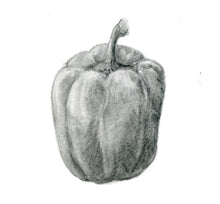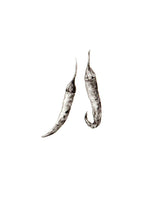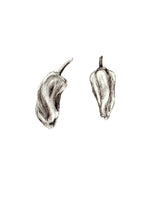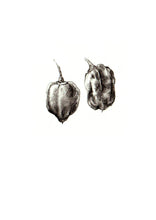
Scientific name: Capsicum annuum L.
Common name: Pepper
General Description: The pepper is an annual plant native to the region of Bolivia and Peru, where it has been cultivated for over 7,000 years. It entered Europe when Christopher Columbus brought it to Spain from the Caribbean and has since entered the dietary patterns of many countries.
Of the various types that we are used to consuming and are familiar with, at the moment, we have four varieties to share:
- The 'De Cayenne' pepper, also known as chili pepper, with spicy fruits that vary between 10 and 12 cm in length and color that changes from green to dark red.
- The 'Padron' pepper is a very common variety in Spanish cuisine. The fruits must be harvested and consumed when the fruit is about 5 cm and a reddish-green color. A fruit appreciated for its mild, occasionally pungent flavor.
- The 'Sweet Chocolate' pepper, a variety that has the characteristic of having an intense brown color when ripe.
- The 'Quadrato D'Asti Rosso' pepper is originally from Italy and has a sweet flavor and square shape, with an intense yellow color when the fruit is ripe.
Nutrition Facts: Bell peppers are known to be the vegetable with the highest vitamin C content, and also a good source of vitamins B1 and B2, A, and E.
Medicinal value Antioxidant properties (carotenes, xanthophylls, lutein); beneficial effects on blood circulation; muscle pain; and arthritis (capsaicin). Stimulate appetite and secretion of gastric juices.
GROWING CONDITIONS
Climate: Hot and humid. With no significant temperature variation at night, and in places with direct sun.
Soil: Medium texture, deep and well drained.
Watering: Once or twice a week along the stem.
Intermixtures: Onion, Carrot, Savory, Calendula, Leviticus, Parsley, Tomato.
Sowing time: Between February and May.
Harvest time: 85 to 120 days after planting.
Seed storage time: 3-4 years.









